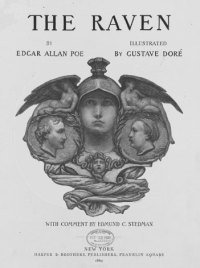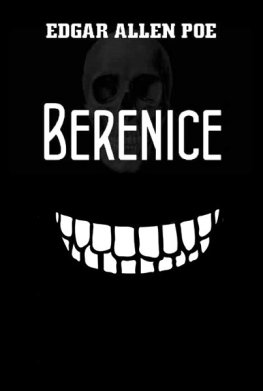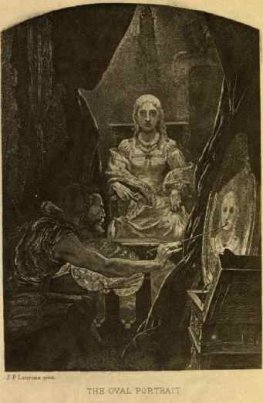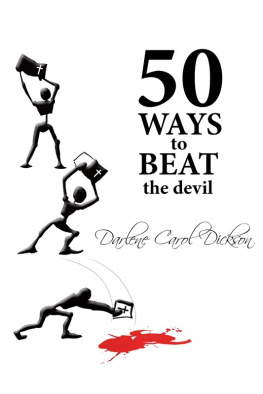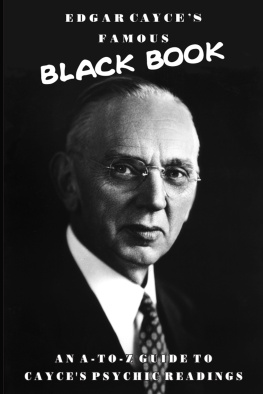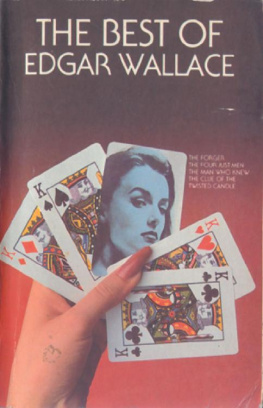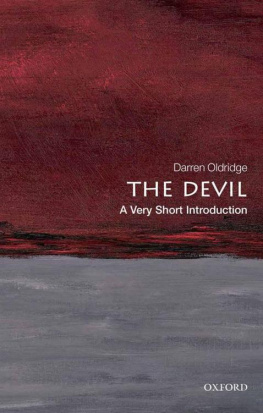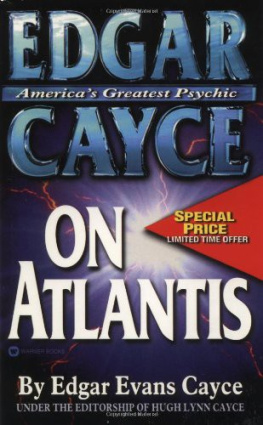Edgar Poe - Never Bet the Devil Your Head
Here you can read online Edgar Poe - Never Bet the Devil Your Head full text of the book (entire story) in english for free. Download pdf and epub, get meaning, cover and reviews about this ebook. genre: Prose / Humor. Description of the work, (preface) as well as reviews are available. Best literature library LitArk.com created for fans of good reading and offers a wide selection of genres:
Romance novel
Science fiction
Adventure
Detective
Science
History
Home and family
Prose
Art
Politics
Computer
Non-fiction
Religion
Business
Children
Humor
Choose a favorite category and find really read worthwhile books. Enjoy immersion in the world of imagination, feel the emotions of the characters or learn something new for yourself, make an fascinating discovery.

Never Bet the Devil Your Head: summary, description and annotation
We offer to read an annotation, description, summary or preface (depends on what the author of the book "Never Bet the Devil Your Head" wrote himself). If you haven't found the necessary information about the book — write in the comments, we will try to find it.
Never Bet the Devil Your Head — read online for free the complete book (whole text) full work
Below is the text of the book, divided by pages. System saving the place of the last page read, allows you to conveniently read the book "Never Bet the Devil Your Head" online for free, without having to search again every time where you left off. Put a bookmark, and you can go to the page where you finished reading at any time.
Font size:
Interval:
Bookmark:
Never Bet the Devil Your Head
by Edgar Allan Poe
"Con tal que las costumbres de un autor," says Don Thomas de las Torres, in the preface to his "Amatory Poems" "sean puras y castas, importa muy poco que no sean igualmente severas sus obras"meaning, in plain English, that, provided the morals of an author are pure personally, it signifies nothing what are the morals of his books. We presume that Don Thomas is now in Purgatory for the assertion. It would be a clever thing, too, in the way of poetical justice, to keep him there until his "Amatory Poems" get out of print, or are laid definitely upon the shelf through lack of readers. Every fiction should have a moral; and, what is more to the purpose, the critics have discovered that every fiction has. Philip Melanchthon, some time ago, wrote a commentary upon the "Batrachomyomachia," and proved that the poet's object was to excite a distaste for sedition. Pierre la Seine , going a step farther, shows that the intention was to recommend to young men temperance in eating and drinking. Just so, too, Jacobus Hugo has satisfied himself that, by Euenis, Homer meant to insinuate John Calvin; by Antinous, Martin Luther; by the Lotophagi, Protestants in general; and, by the Harpies, the Dutch. Our more modern Scholiasts are equally acute. These fellows demonstrate a hidden meaning in "The Antediluvians," a parable in Powhatan," new views in "Cock Robin," and transcendentalism in "Hop O' My Thumb." In short, it has been shown that no man can sit down to write without a very profound design. Thus to authors in general much trouble is spared. A novelist, for example, need have no care of his moral. It is therethat is to say, it is somewhereand the moral and the critics can take care of themselves. When the proper time arrives, all that the gentleman intended, and all that he did not intend, will be brought to light, in the "Dial," or the "Down-Easter," together with all that he ought to have intended, and the rest that he clearly meant to intend:so that it will all come very straight in the end.
There is no just ground, therefore, for the charge brought against me by certain ignoramusesthat I have never written a moral tale, or, in more precise words, a tale with a moral. They are not the critics predestined to bring me out, and develop my morals:that is the secret. By and by the "North American Quarterly Humdrum" will make them ashamed of their stupidity. In the meantime, by way of staying executionby way of mitigating the accusations against meI offer the sad history appended,a history about whose obvious moral there can be no question whatever, since he who runs may read it in the large capitals which form the title of the tale. I should have credit for this arrangementa far wiser one than that of La Fontaine and others, who reserve the impression to be conveyed until the last moment, and thus sneak it in at the fag end of their fables.
Defuncti injuria ne afficiantur was a law of the twelve tables, and De mortuis nil nisi bonum is an excellent injunctioneven if the dead in question be nothing but dead small beer. It is not my design, therefore, to vituperate my deceased friend, Toby Dammit. He was a sad dog, it is true, and a dog's death it was that he died; but he himself was not to blame for his vices. They grew out of a personal defect in his mother. She did her best in the way of flogging him while an infantfor duties to her wellregulated mind were always pleasures, and babies, like tough steaks, or the modern Greek olive trees, are invariably the better for beatingbut, poor woman! she had the misfortune to be left-handed, and a child flogged left-handedly had better be left unflogged. The world revolves from right to left. It will not do to whip a baby from left to right. If each blow in the proper direction drives an evil propensity out, it follows that every thump in an opposite one knocks its quota of wickedness in. I was often present at Toby's chastisements, and, even by the way in which he kicked, I could perceive that he was getting worse and worse every day. At last I saw, through the tears in my eyes, that there was no hope of the villain at all, and one day when he had been cuffed until he grew so black in the face that one might have mistaken him for a little African, and no effect had been produced beyond that of making him wriggle himself into a fit, I could stand it no longer, but went down upon my knees forthwith, and, uplifting my voice, made prophecy of his ruin.
The fact is that his precocity in vice was awful. At five months of age he used to get into such passions that he was unable to articulate. At six months, I caught him gnawing a pack of cards. At seven months he was in the constant habit of catching and kissing the female babies. At eight months he peremptorily refused to put his signature to the Temperance pledge. Thus he went on increasing in iniquity, month after month, until, at the close of the first year, he not only insisted upon wearing moustaches, but had contracted a propensity for cursing and swearing, and for backing his assertions by bets.
Through this latter most ungentlemanly practice, the ruin which I had predicted to Toby Dammit overtook him at last. The fashion had "grown with his growth and strengthened with his strength," so that, when he came to be a man, he could scarcely utter a sentence without interlarding it with a proposition to gamble. Not that he actually laid wagersno. I will do my friend the justice to say that he would as soon have laid eggs. With him the thing was a mere formula nothing more. His expressions on this head had no meaning attached to them whatever. They were simple if not altogether innocent expletivesimaginative phrases wherewith to round off a sentence. When he said "I'll bet you so and so," nobody ever thought of taking him up; but still I could not help thinking it my duty to put him down. The habit was an immoral one, and so I told him. It was a vulgar onethis I begged him to believe. It was discountenanced by societyhere I said nothing but the truth. It was forbidden by act of Congresshere I had not the slightest intention of telling a lie. I remonstratedbut to no purpose. I demonstratedin vain. I entreatedhe smiled. I imploredhe laughed. I preachedhe sneered. I threatenedhe swore. I kicked himhe called for the police. I pulled his nosehe blew it, and offered to bet the Devil his head that I would not venture to try that experiment again.
Poverty was another vice which the peculiar physical deficiency of Dammit's mother had entailed upon her son. He was detestably poor, and this was the reason, no doubt, that his expletive expressions about betting, seldom took a pecuniary turn. I will not be bound to say that I ever heard him make use of such a figure of speech as "I'll bet you a dollar." It was usually "I'll bet you what you please," or "I'll bet you what you dare," or "I'll bet you a trifle," or else, more significantly still, "I'll bet the Devil my head."
This latter form seemed to please him best;perhaps because it involved the least risk; for Dammit had become excessively parsimonious. Had any one taken him up, his head was small, and thus his loss would have been small too. But these are my own reflections and I am by no means sure that I am right in attributing them to him. At all events the phrase in question grew daily in favor, notwithstanding the gross impropriety of a man betting his brains like bank-notes:but this was a point which my friend's perversity of disposition would not permit him to comprehend. In the end, he abandoned all other forms of wager, and gave himself up to "I'll bet the Devil my head," with a pertinacity and exclusiveness of devotion that displeased not less than it surprised me. I am always displeased by circumstances for which I cannot account. Mysteries force a man to think, and so injure his health. The truth is, there was something in the air with which Mr. Dammit was wont to give utterance to his offensive expressionsomething in his manner of enunciationwhich at first interested, and afterwards made me very uneasysomething which, for want of a more definite term at present, I must be permitted to call queer; but which Mr. Coleridge would have called mystical, Mr. Kant pantheistical, Mr. Carlyle twistical, and Mr. Emerson hyperquizzitistical. I began not to like it at all. Mr. Dammits soul was in a perilous state. I resolved to bring all my eloquence into play to save it. I vowed to serve him as St. Patrick, in the Irish chronicle, is said to have served the toad, that is to say, "awaken him to a sense of his situation." I addressed myself to the task forthwith. Once more I betook myself to remonstrance. Again I collected my energies for a final attempt at expostulation.
Font size:
Interval:
Bookmark:
Similar books «Never Bet the Devil Your Head»
Look at similar books to Never Bet the Devil Your Head. We have selected literature similar in name and meaning in the hope of providing readers with more options to find new, interesting, not yet read works.
Discussion, reviews of the book Never Bet the Devil Your Head and just readers' own opinions. Leave your comments, write what you think about the work, its meaning or the main characters. Specify what exactly you liked and what you didn't like, and why you think so.

